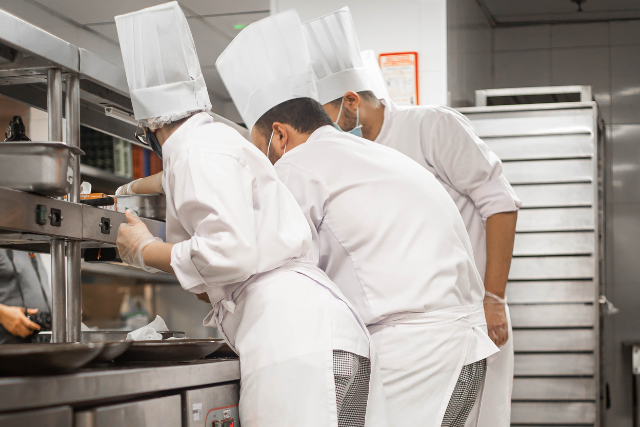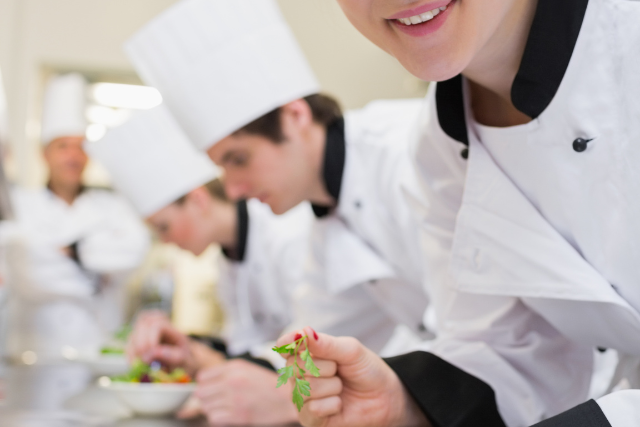
Finding the right cooking class takes more than a quick search as each program has its own structure and learning outcomes. While some focus on introducing essential kitchen practices, others are designed to support progress toward more advanced or professional settings. For instance, CCA Manila offers programs suited to various experience levels and learning goals.
To make an informed decision, you must understand what the course offers and how it aligns with your background and plans. This guide outlines key points to consider when reviewing your options, so you can choose a class that encourages consistent growth and builds real, usable skills.
Know What You Want to Learn
Start by thinking about the skills you want to develop. Do you need structured, technique-based training in a professional kitchen, or would you rather learn a few classic dishes in a more relaxed setting? Choose a course that keeps you motivated.
What you want to do next will shape the program that fits. Once you know what draws you to the kitchen, choosing a path that supports it becomes easier.
Compare Program Types: Casual to Professional

Culinary programs vary widely in structure and intensity. Learning which end of that spectrum fits your current plans will save you time and help you avoid jumping into something that doesn’t meet your needs.
Short, interest-based classes tend to be practical, low-cost, and fun. You’ll walk away with new skills and techniques, but they typically won’t provide career-level training. These are great for people testing the waters or learning for personal satisfaction.
On the other hand, professional training programs are meant to build a foundation. They usually include intensive kitchen work, classroom learning, assessments, and industry exposure.
There are also hybrid programs that sit in the middle. Many combine basic cooking instruction with introductory business concepts or food service principles. They can be a good option for those wanting more depth without committing to a full degree or diploma.
Narrowing Down the Right Fit
Once you’ve figured out the type of program you’re leaning toward, match it to your day-to-day reality. Practical considerations matter as much as content.
- Time Commitment: Some courses require full-time hours and consistent attendance. Others are modular or part-time, which work better if you’re already working or have limited availability.
- Cost Breakdown: Beyond tuition, ask if the other costs include ingredients, uniforms, equipment, tech access, and certification exams. Some culinary schools provide materials; others expect you to supply them. Understanding the full cost helps avoid surprises.
- School Reputation: Look into the school’s track record. Have alumni gone on to solid jobs? Are the instructors working professionals or only academics? Are the facilities up-to-date and similar to what you’d see in actual kitchens?
- Industry Access: Programs that include internships or live kitchen experiences usually offer a smoother transition into work. This kind of exposure also helps build your professional network early on.
- Post-Course Support: Few schools assist with job placement, provide alum networks, or offer career coaching. These services are especially valuable when starting or making a career shift.
- Evaluation Method: Check how your work will be assessed. Will it be practical exams, written tests, or team-based tasks? A well-balanced assessment approach tends to better reflect real industry expectations.
- Learning Style Match: Few courses in cooking are fast-paced and highly competitive. Choose an environment where you’re more likely to stay engaged and perform well.
Discover Courses That Align with Your Interests

CCA Manila offers diverse programs designed to match different interests and experience levels in the food industry. Here are some of them:
Bachelor of Science in Entrepreneurial Management Major in Culinary Arts
Ideal for those with a culinary background aiming to launch their food-focused ventures, the Bachelor of Science in Entrepreneurial Management Major in Culinary Arts pairs hands-on cooking experience with the fundamentals of entrepreneurship. It covers both the creative and operational sides of the business, guiding future chefs who plan to open restaurants, catering companies, or other food-based startups.
This option works well for individuals who already know kitchen skills and want to channel their experience toward building and running their food enterprises.
Diploma in Culinary Arts & Technology Management
This diploma prepares students for dynamic roles in the food service industry. Graduates often begin in positions like line cook or chef de partie within respected restaurants or hotels. Over time, they may move into roles such as executive chef, corporate chef, restaurateur, food entrepreneur, or even R&D chef.
The course structure balances technical skill development with leadership and kitchen management training, setting a foundation for those pursuing advanced culinary careers.
Professional Chef Plus
Professional Chef Plus is a six-month hybrid course that builds essential culinary foundations through online learning and scheduled face-to-face sessions. It’s designed for individuals seeking to deepen their technical skills or gain preparation for industry internships. In addition to hands-on kitchen training, the program encourages environmentally responsible practices and offers a clear pathway for continued growth within the culinary field.
Fundamentals in Culinary Arts
Fundamentals in Culinary Arts is a comprehensive introductory program designed for those who want to build a strong foundation in professional cooking. The course follows a structured progression, with each session focused on developing specific techniques that gradually increase in complexity.
Each class concludes with a group tasting and feedback from the chef instructor, allowing participants to assess their work and apply what they have learned to future sessions.
Fundamentals in Baking & Pastry Arts
People starting in baking and pastry work can benefit from a program that builds basic skills and knowledge. The Fundamentals in Baking and Pastry Arts course covers food safety, baking measurements, eco-friendly kitchen practices, and common baking methods. Participants use what they learn by preparing different baked goods, helping them grow more confident and capable in a professional kitchen.
Start Your Culinary Path with CCA Manila!
Choosing the right program is a big decision, and once you know what fits your interests and future direction, we’re here to help you take the next step.
Enroll now at CCA Manila and begin your journey. We offer a range of programs—from professional culinary training and food entrepreneurship to pastry arts and culinary agribusiness—designed to match the pace, background, and work you want to pursue.
Now’s the perfect time to begin. Explore your options and take your place in this field!
